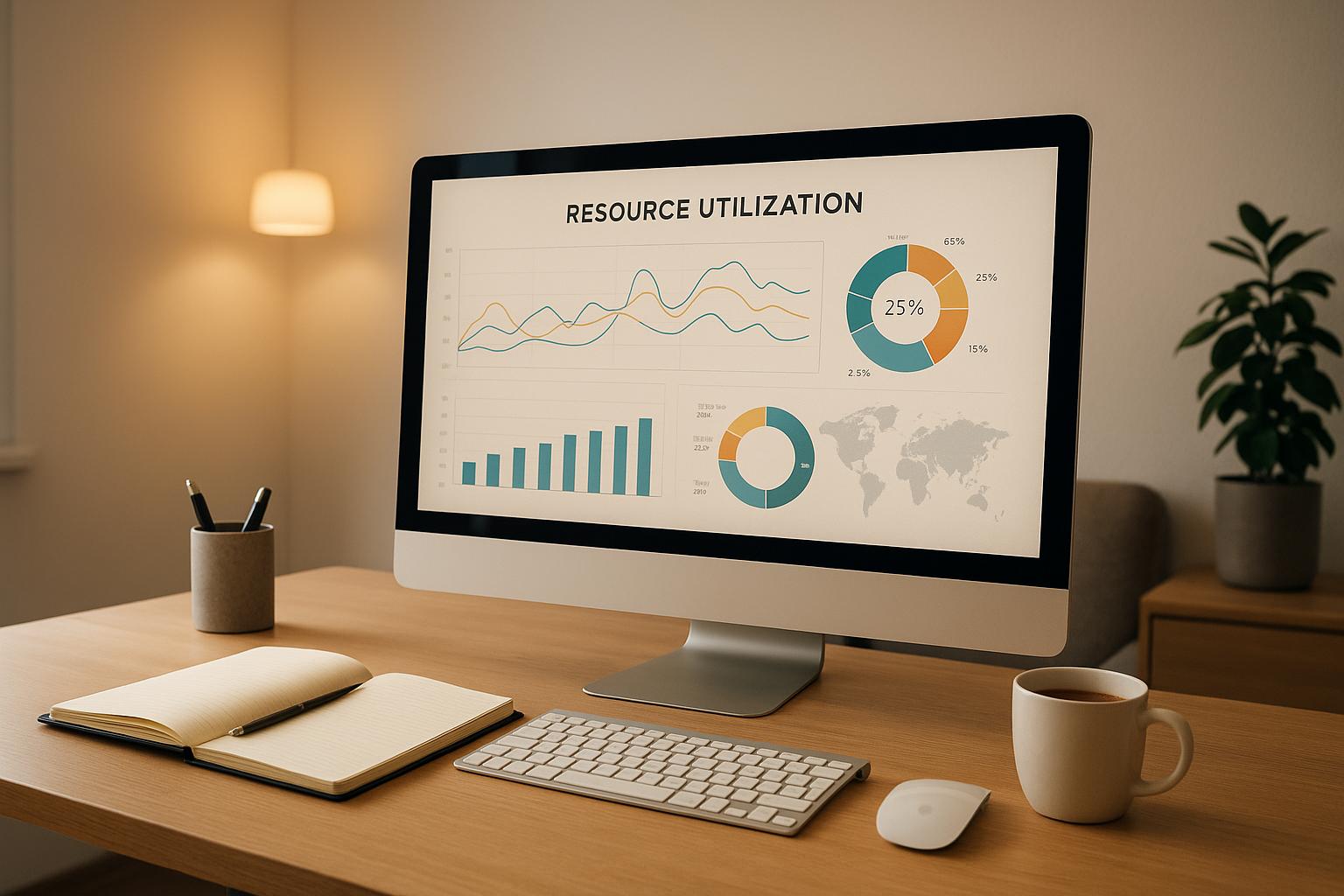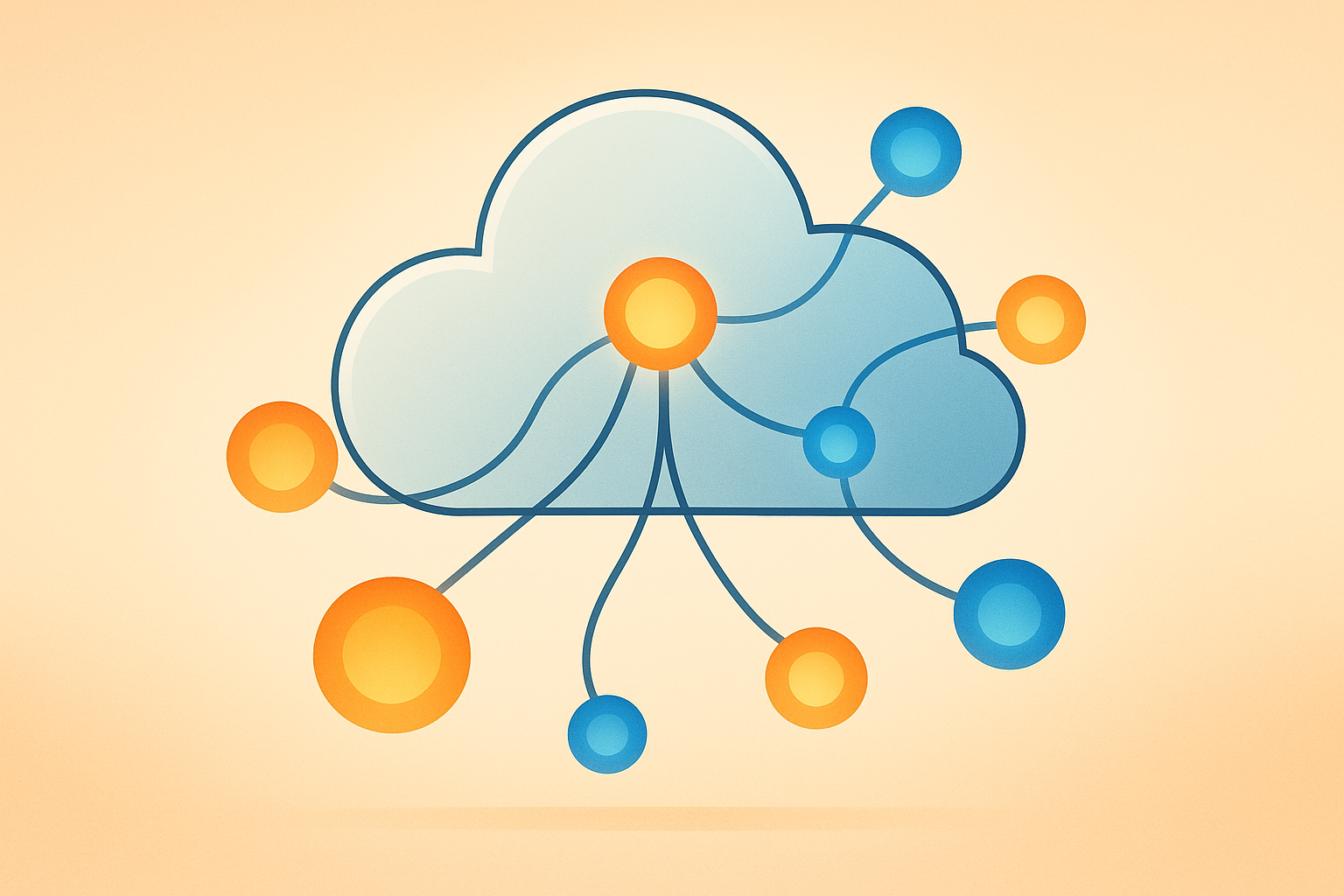Soft skills are essential for workplace success. Industries like healthcare, tech, and manufacturing require tailored frameworks to develop skills such as communication and problem-solving. The right tools help identify gaps, track progress, and align training with business goals.
Key takeaways:
- Challenges: SMEs often face limited budgets, time, and expertise for skill-building.
- Solution: AI-powered tools automate assessments, offer data-driven insights, and integrate with HR systems.
- Top Tools:
- SFIA: Structured skill levels for global standardization.
- Deel Engage: Scenario-based training with performance integration.
- Draup: AI-driven predictions for future skill needs.
- Edstellar: Industry-specific modules with practical learning.
- DevSkiller: Objective assessments for hiring and development.
Choose tools that combine customization, analytics, and system integration to improve outcomes.
Using AI for Soft Skills Recording with L&D and AI Strategist, Scott Provence
What to Look for in Soft Skill Framework Tools
The right soft skill framework tools can significantly impact your training outcomes. These tools should combine customization, data analytics, system integration, and real-time insights to create frameworks aligned with your industry needs. Choosing a platform with these features ensures your investment delivers meaningful results rather than just ticking off training requirements.
Customization and Industry-Specific Features
Flexibility is key when building soft skill frameworks. Different teams and industries require unique approaches to communication and interpersonal skills. The best tools let you tailor skill categories, adjust assessment criteria, and modify learning paths to meet your specific needs.
For example, a healthcare organization might prioritize empathy and patient communication, while a tech company could focus on cross-functional collaboration and clear technical communication. Look for platforms offering customizable templates and role-specific profiles to address these unique demands. Additionally, tools should support detailed, data-driven skill gap analysis to pinpoint areas for improvement.
Data-Driven Skill Gap Analysis
Modern tools should go far beyond basic surveys. Advanced analytics can provide a clear picture of your team’s strengths and areas for growth. Platforms that allow you to import performance data from existing systems are especially valuable. This historical data adds context to assessments, helping you identify patterns between soft skills and job performance.
Avoid tools that rely solely on self-assessments or manager evaluations. Instead, opt for platforms that use robust data analysis to deliver actionable insights.
Integration with Existing Systems
Seamless integration with your current HR and training systems is crucial for smooth adoption. The ideal soft skill framework tool should connect with your existing HR software, pulling in employee data and training histories for real-time updates. This ensures your skill data stays current as training progresses.
Integration with Learning Management Systems (LMS) is especially important if you already have established training programs. A good tool will complement your current learning infrastructure and link soft skill development to measurable business outcomes. For example, integrating with performance management systems can help track how skill improvements lead to better job performance, higher employee satisfaction, and stronger team collaboration.
Real-Time Analytics and Reporting
Accurate measurement sets successful soft skill programs apart from ineffective ones. Look for tools offering advanced analytics that provide immediate feedback on training effectiveness, employee engagement, and skill development progress. Features like peer feedback and multi-source evaluations can offer a more comprehensive view of performance compared to traditional top-down assessments.
Your platform should also simplify reporting. Whether you need weekly updates for managers or quarterly analyses for leadership, the tool should generate detailed reports without the need for manual data compilation. Some platforms even use AI to provide personalized learning recommendations, suggesting specific training based on individual performance metrics and identified skill gaps. These features make it easier to track progress and maintain consistent performance measurement across your organization.
Best Tools for Building Industry-Aligned Soft Skill Frameworks
When it comes to developing soft skill frameworks that align with industry needs, several platforms stand out for their tailored approaches and unique features. These tools cater to a wide range of business requirements, from global standardization to AI-based insights. Let’s dive into some of the top platforms helping organizations refine and implement soft skill frameworks.
SFIA (Skills Framework for the Information Age)
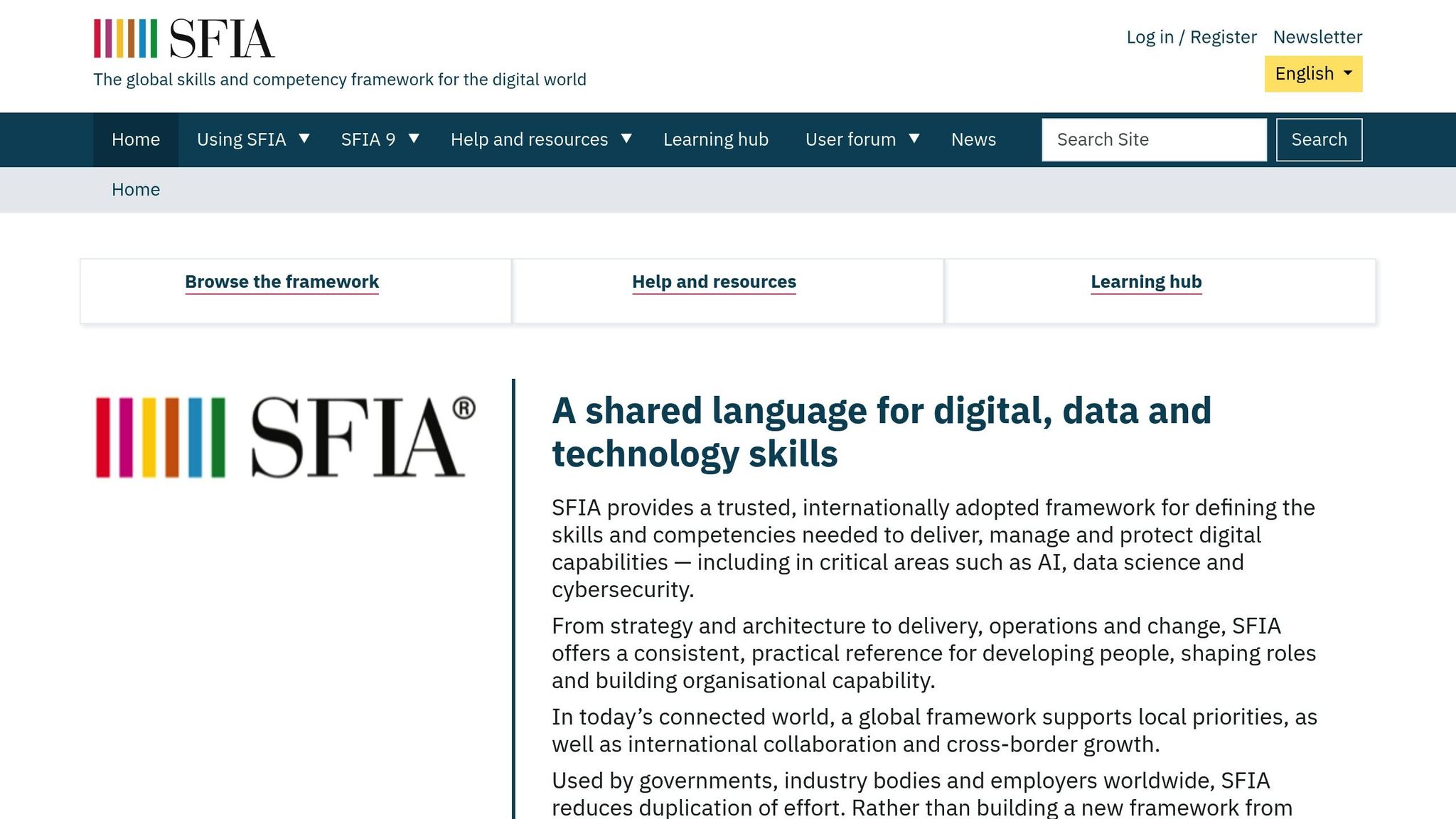
SFIA is a well-established framework that bridges technical and soft skills in a structured way. Initially created for the IT sector, it has grown to serve a variety of industries worldwide. The framework categorizes skills across seven responsibility levels and includes over 100 competencies, such as stakeholder management and relationship building.
What makes SFIA particularly effective is its adaptability. Companies can tailor the framework to meet their specific industry needs while maintaining alignment with global standards. Big names like Accenture and IBM have adopted SFIA, leveraging its structure to design clear career paths that balance technical expertise with interpersonal skills.
A standout feature of SFIA is its detailed skill descriptions, which clarify expectations at each competency level. For example, the "Relationship Management" skill area provides actionable indicators for behaviors, ranging from basic teamwork at Level 2 to strategic partnership management at Level 6.
Deel Engage
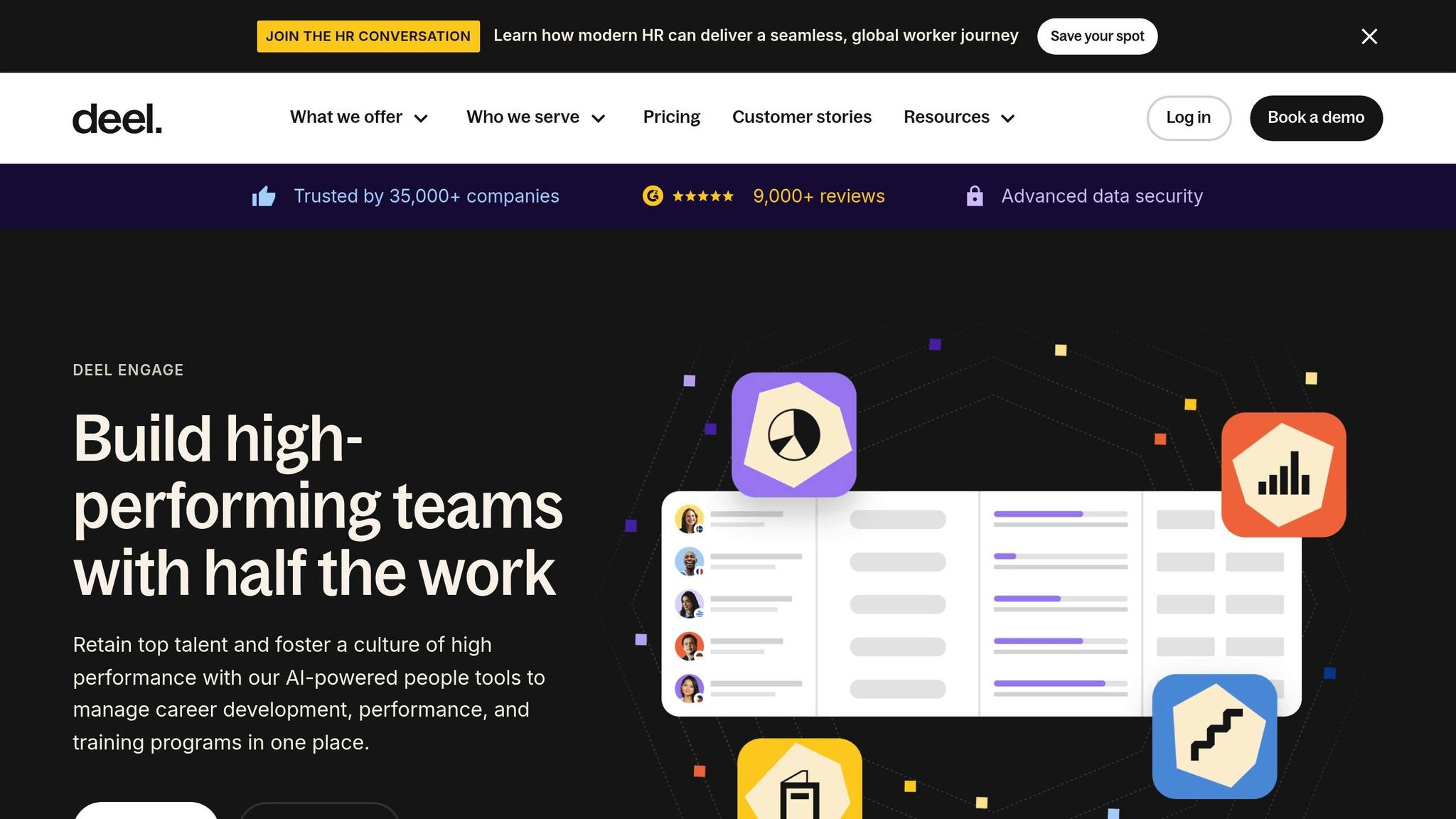
Deel Engage focuses on soft skills training with a library of over 1,000 courses covering areas like communication, leadership, emotional intelligence, and cultural awareness. Its practical, scenario-based modules immerse learners in real-world situations, making the training more impactful.
One of Deel Engage's strengths is its integration with performance management systems. This feature ties soft skill development directly to career growth and compensation, ensuring these skills are prioritized alongside technical ones. Additionally, the platform supports multiple languages, making it accessible to global teams.
Another key feature is the certification and tracking system. Employees earn verified certificates upon completing modules, which can be added to performance reviews and development records. Managers also benefit from dashboards that provide insights into team progress, helping identify areas that need extra focus.
Draup
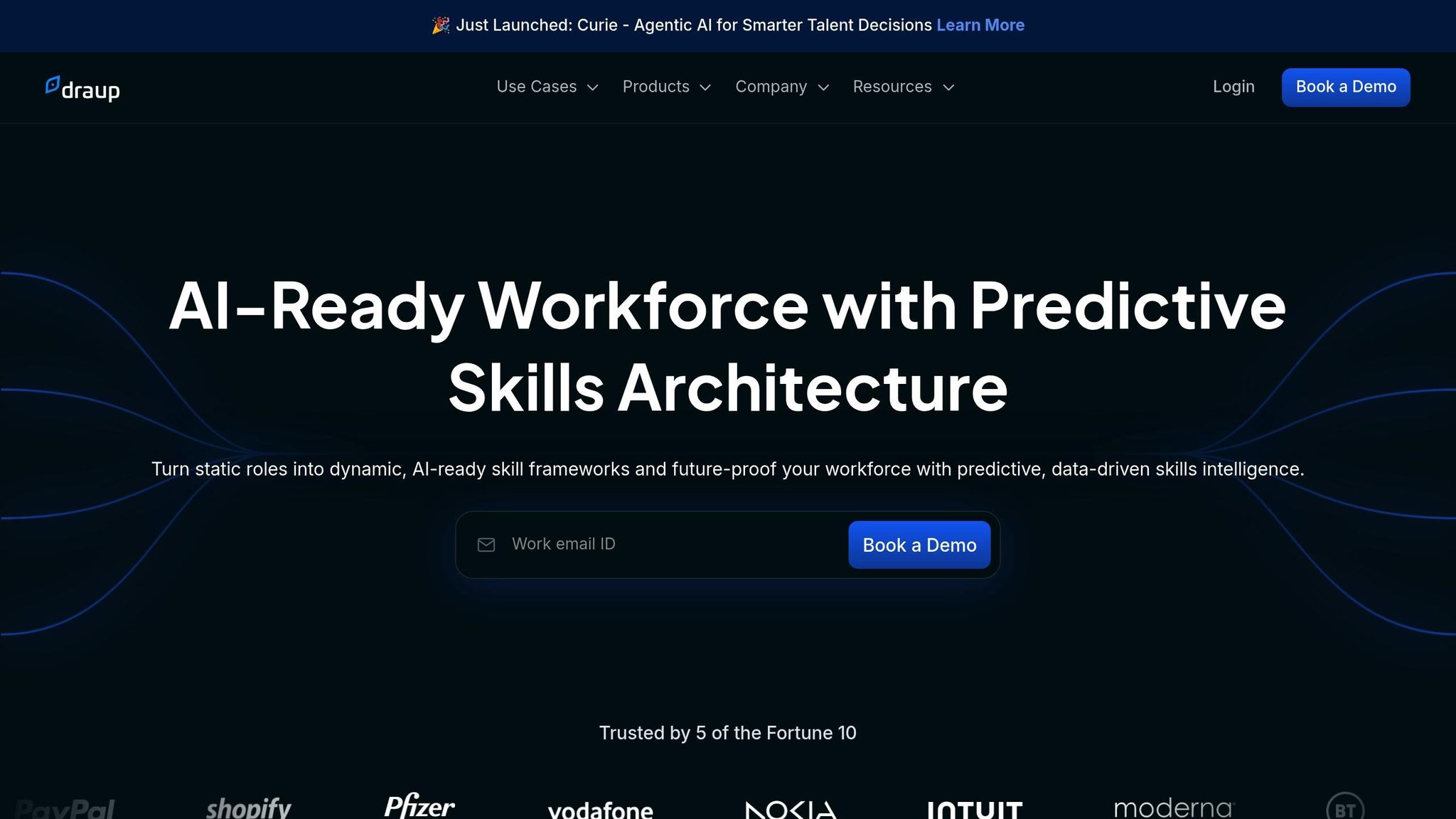
Draup takes an AI-driven approach to soft skill development, analyzing industry trends to identify the skills most critical for specific roles and sectors. The platform continuously updates its skill taxonomy to reflect changing job market demands, ensuring its frameworks remain relevant.
Draup excels in gap analysis, comparing current employee skills with industry benchmarks and future requirements. Its analytics engine can even predict which soft skills will gain importance in the next few years, enabling organizations to stay ahead of workforce challenges.
Another highlight is Draup's focus on aligning soft skill development with business goals. The platform demonstrates how improving skills like cross-functional collaboration or client communication can directly impact revenue and efficiency, making it easier to secure leadership support for training initiatives.
Edstellar
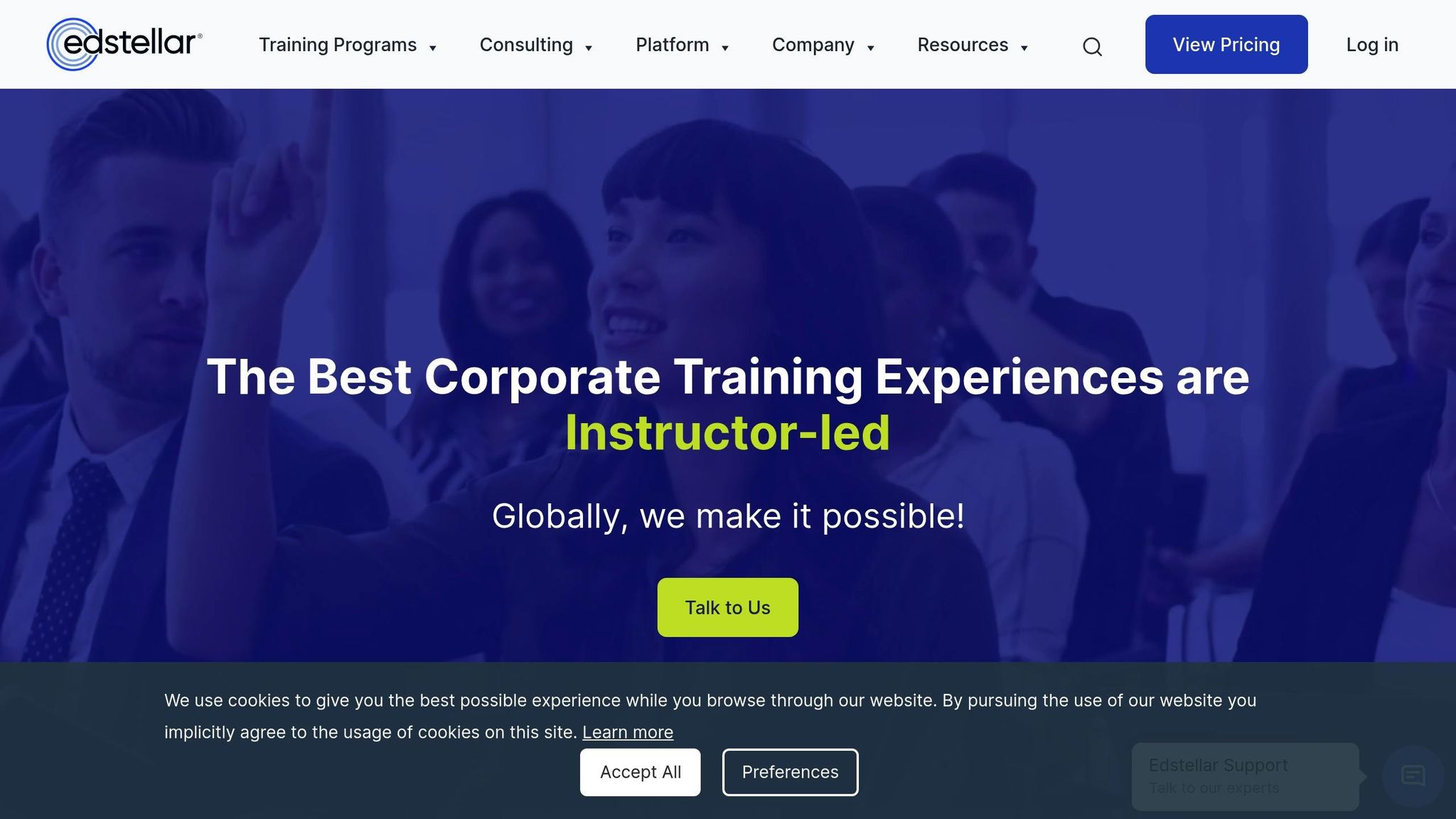
Edstellar specializes in creating industry-specific frameworks, offering pre-designed modules tailored to sectors like healthcare, finance, manufacturing, and retail. Each framework addresses the unique challenges professionals face in these industries, from patient empathy in healthcare to client relationship management in finance.
The platform emphasizes experiential learning through role-playing, case studies, and simulations. This hands-on approach helps employees apply their skills in realistic scenarios, enhancing retention and effectiveness.
What sets Edstellar apart is its focus on solving business challenges. The platform identifies how soft skill gaps impact metrics like customer satisfaction, employee retention, or operational efficiency. Its frameworks are tied to measurable outcomes, making it easier to demonstrate the return on investment (ROI) of soft skill training.
DevSkiller

DevSkiller offers an assessment-first approach to soft skill development, using tools like behavioral interviews, situational judgment tests, and peer evaluations. This enables organizations to objectively measure soft skills, moving beyond subjective evaluations.
The platform’s behavioral interviews assess competencies like teamwork, adaptability, and problem-solving, while its situational tests simulate workplace scenarios to evaluate decision-making. These assessments are valuable for both hiring and ongoing development efforts.
DevSkiller’s greatest impact is on hiring and retention. By incorporating soft skill assessments into recruitment, organizations report better hiring decisions and reduced turnover. The platform also helps managers identify skill gaps early, allowing for targeted support that improves employee engagement and satisfaction.
These platforms collectively provide a range of solutions for building effective, industry-aligned soft skill frameworks, helping businesses prepare their workforce for both present and future challenges.
sbb-itb-bec6a7e
Tool Comparison
Finding the right soft skill framework tool depends on your specific needs, budget, and the demands of your industry. Here's a closer look at some popular options:
SFIA offers a highly structured and standardized approach. Its seven-level framework not only provides clear career progression paths but also ensures alignment with industry benchmarks. This makes it a strong choice for organizations aiming to maintain consistency across roles and teams.
Deel Engage excels in practical learning with scenario-based modules. Its extensive course library and multi-language support make it ideal for global teams. Plus, its integration with performance management systems helps tie soft skill development to career growth.
Draup leverages AI to predict emerging skill demands, making it a valuable tool for strategic workforce planning. Its data-driven insights can help companies stay ahead in a rapidly changing job market.
Edstellar focuses on industry-specific solutions. With pre-designed modules tailored to sectors like healthcare, finance, manufacturing, and retail, it uses simulations to deliver hands-on learning experiences. This makes it particularly effective for specialized industries.
DevSkiller takes a unique approach by prioritizing assessments. Using behavioral interviews and situational judgment tests, it provides an objective way to measure soft skills, which is especially useful for refining hiring processes.
Here's a quick comparison of these tools to help you decide:
| Tool | Best For | Key Strength | Ideal Company Size |
|---|---|---|---|
| SFIA | Global standardization | Seven-level framework | Medium to Large |
| Deel Engage | Practical skill application | Course library integration | Small to Large |
| Draup | Strategic planning | AI-driven predictions | Medium to Large |
| Edstellar | Industry-specific needs | Tailored modules | Small to Medium |
| DevSkiller | Hiring and assessment | Objective skill measurement | Small to Large |
AI for Businesses: Find the Right Tools
Navigating through countless AI tools to find the perfect match for your business can be overwhelming. That’s why this curated directory is here - to make the process easier for SMEs and growing companies. Below, discover how this resource brings together essential AI tools tailored to meet your business needs.
About AI for Businesses
AI for Businesses is your go-to directory for discovering AI tools designed to streamline operations and boost productivity. Whether you’re looking for solutions to improve branding, content creation, or other key areas, this resource has you covered. It features tools like Looka for brand design, Rezi for crafting resumes, Stability.ai for generating images, and Writesonic for producing content - all conveniently listed in one place to save you time and effort.
Conclusion
Building an effective soft skill framework requires the right tools, a clear game plan, and ongoing dedication. Different tools bring distinct advantages, catering to the diverse needs across industries.
Using a combination of tools often leads to better outcomes. Pairing specialized assessment platforms with integrated learning systems allows companies to target specific skill gaps while keeping a clear view of overall team competencies.
Real-time analytics play a crucial role in fine-tuning these frameworks. They enable quick adjustments, ensuring that soft skill programs deliver tangible results. This data-driven approach makes it easier to identify what works and make informed decisions.
Resources like AI for Businesses simplify the search for AI-powered tools tailored to smaller enterprises. Instead of spending countless hours researching, businesses can explore curated solutions that save time and help make smarter choices.
Choosing the right tools for soft skill development enhances employee engagement, teamwork, and leadership - key points highlighted throughout this discussion. As workplace dynamics shift, having a solid tech-driven foundation ensures your team stays prepared and your development strategies remain impactful.
FAQs
How do AI-powered tools help create industry-specific soft skill frameworks?
AI-driven tools simplify the process of building soft skill frameworks tailored to specific industries. These tools offer personalized training experiences that adjust to each learner's unique needs, using features like virtual role-playing, real-time coaching, and feedback-based learning. This approach helps employees strengthen essential skills, such as communication, teamwork, and emotional intelligence, more effectively.
What’s more, AI makes soft skill training both scalable and widely available, enabling organizations to deliver consistent, high-quality programs to remote teams. By customizing content for particular industries, these tools ensure employees develop the skills that matter most for their roles, improving both engagement and retention over time.
What should I look for in a tool to effectively train soft skills in my organization?
When you're choosing a tool for soft skill training, it’s smart to look for features that encourage engagement and interactivity. Options like simulations, role-playing exercises, or gamified elements can make the training feel more hands-on and practical. These approaches allow employees to practice and refine their skills in scenarios that mimic real-life challenges.
It’s also important to pick a tool with strong feedback and assessment features. These help track progress, pinpoint areas that need improvement, and evaluate how effective the training is overall. This way, you can ensure the program aligns with your organization’s goals while supporting ongoing growth.
Focusing on these key features can help you build a learning experience that’s both dynamic and effective, setting your team up for success.
How do tools like Draup and Edstellar keep their soft skill frameworks relevant in today’s fast-changing job market?
Tools like Draup and Edstellar stand out by using real-time data, AI-powered analytics, and ongoing skills validation to keep their frameworks aligned with shifting industry demands.
Draup leverages advanced AI tools to monitor changes in job roles, predict emerging skill requirements, and ensure that workforce capabilities match business goals. On the other hand, Edstellar emphasizes keeping its skill catalogs up-to-date and validating them against current market trends, helping organizations stay competitive and prepared for what's next.
